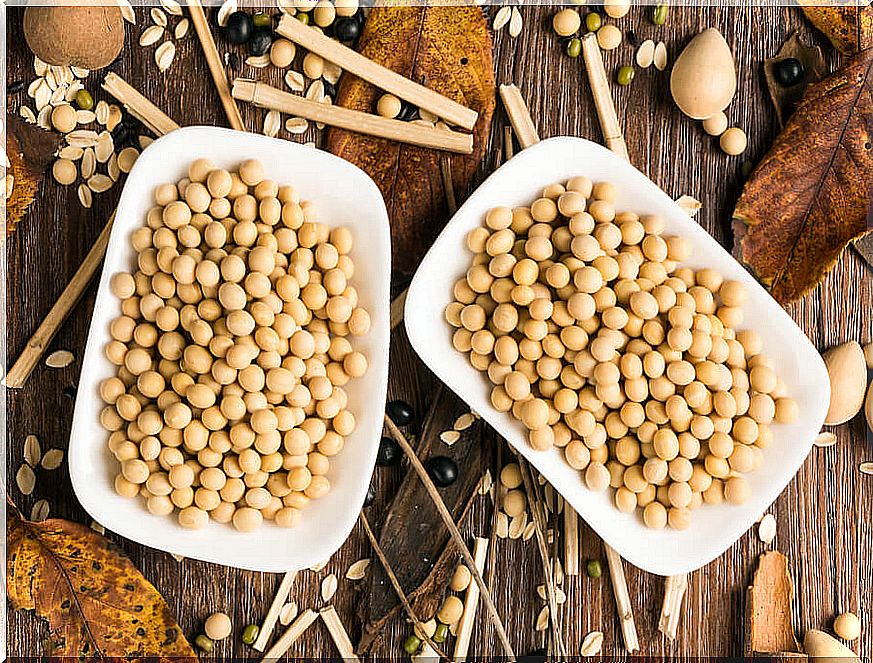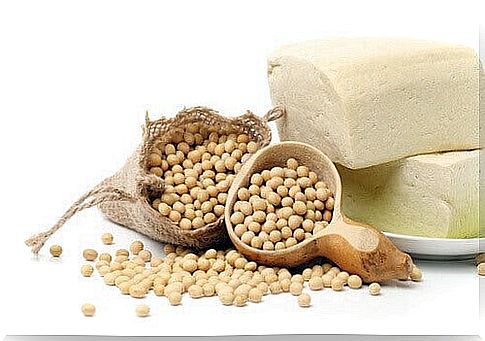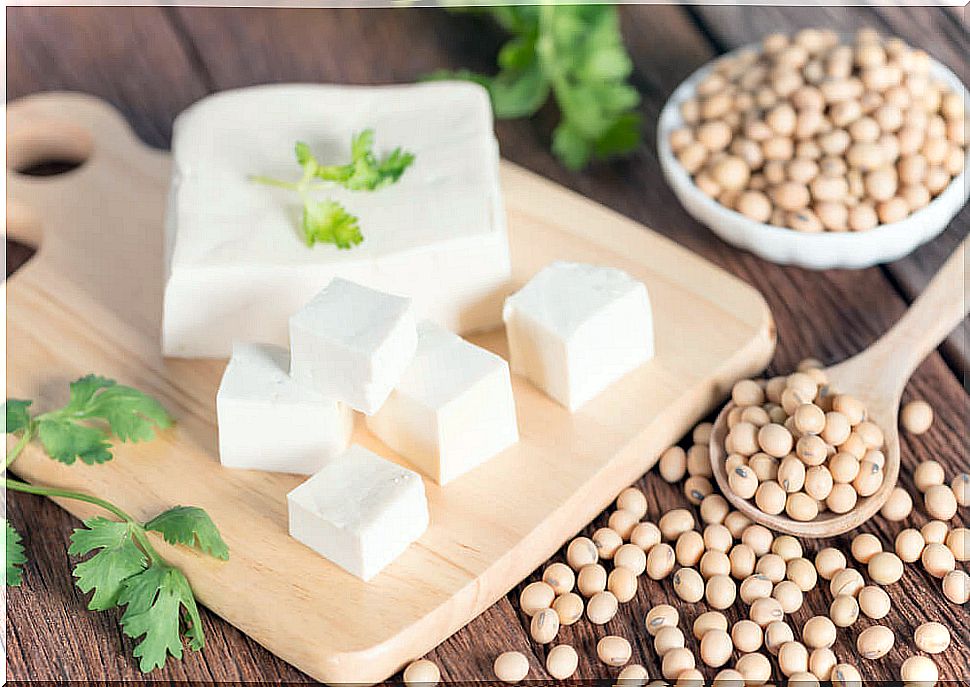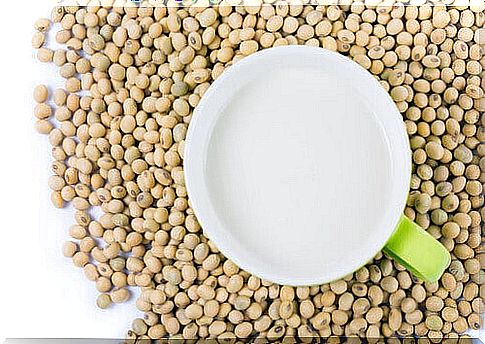Soy Protein: Good Or Bad For Your Health?
In this article we will discover whether or not the controversy over soy protein is scientifically based, analyzing its benefits and possible risks supported by studies. Do not miss it.

Soy can be eaten in different ways, either as soybeans or in a multiplicity of products that are made from it, such as tofu or soy milk. Now, there is a lot of controversy about the health benefits of soy protein.
Vegans and vegetarians get protein from soy. Now, is soy protein really good or is it bad for your health? Let’s review the different scientific investigations together.
Nutritional properties of soy

Soy provides a protein of high nutritional quality, that is, it contains the nine essential amino acids for the body. This is precisely what makes it a fundamental food for vegans and vegetarians.
Cooked soybeans provide about 127 kilocalories per 100 grams and about 12 grams of protein, 5.5 grams of fat, 10 grams of carbohydrates and 4 of fiber for the same amount.
The best option to take advantage of its benefits is to consume soybeans in full or those products that are made with them, such as tempeh, miso or tofu. These products do not contain preservatives or added sugars or fats.
Soy protein powder
If we refer specifically to soy protein powder that is made with defatted soybeans to eliminate its fiber and sugars, we find that its nutritional properties are for every 28 grams:
- 95 calories
- 1 gram of fat
- 2 grams of carbohydrates
- 1.6 grams of fiber
- 23 grams of protein
- 25% of your daily value for iron
- 22% of the RDA for phosphorus
- 22% of the recommended daily value for copper
- 21% of the RDA for manganese
Soy powder is a source of protein, but at the same time of phytates, a component that could reduce the absorption of minerals.
The soy protein controversy

Criticisms of soy protein appeared because of its components: isoflavones and phytoestromenes. In the past, they have been linked to cancer cell growth, fertility and thyroid problems.
Soy and cancer
In 2010, a study concluded that those women who had had a moderate consumption of soy throughout their lives had a lower risk of developing breast cancer than those who did not consume this food.
It is also worth noting that the same research found no relationship between an increased risk of this type of cancer with a moderate consumption of isoflavones.
Relationship between soy and fertility
Soy protein is rich in phytoestrogens, a compound similar to estrogens but produced in plants, which has been associated with the alteration of hormonal levels.
Research has not reached conclusions to support the decrease in testosterone from soy consumption. In contrast, no changes have been observed in men who consume soy protein.
Thyroid and soy problems
The last concern regarding regular consumption of soy protein refers to a possible increase in thyroid problems.
Although most studies have not found a direct relationship between the two, a 2011 investigation found an increase in the progression from subclinical hypothyroidism to overt hypothyroidism in those who consume soy on a regular basis. Despite this, more studies are needed in this regard.
If you suffer from hypothyroidism, consult your doctor before deciding to increase your intake of soy protein. It may be necessary to regulate your thyroid medication knowing the change in diet.
Genetically modified foods
Finally, the controversy centers on the fact that soy products are frequently genetically modified. However, as of today, there is no scientific evidence of adverse health effects when comparing genetically modified soy protein with unmodified soy protein.
Benefits of soy protein

Including soy protein in your diet could have some benefits for your health, such as:
- A reduction in bad cholesterol (LDL) and an increase in good cholesterol (HDL).
- Some studies associate regular consumption of soy protein with a decreased risk of breast cancer.
- Regular consumption could reduce the risk of developing prostate cancer.
- Soy is an excellent source of vegetable protein, perfect for those who do not consume animal protein, either due to health problems or convictions.
- It could help decrease the symptoms of menopause. However, so far the data in this regard are not conclusive.
Soy protein provides benefits to the body and its side effects, so far, have not been conclusively determined. If you want to increase the consumption of soy, consult your doctor or nutritionist, he better than anyone will be able to advise you in this regard.








